Cannon, 44, who recently spoke about his diagnosis with People, shares 13-year-old twins, Monroe and Moroccan, with Mariah Carey.
He is also father to Rise, one, Powerful, three, and Golden, seven, who he had with Brittany Bell.
The TV star has Beautiful, one, and Zion and Zillion, both three, with Abby De La Rosa.
Cannon has Halo, one, and the late Zen, five months, with Alyssa Scott; Legendary, two, with Bre Tiesi and Onyx, two, with LaNisha Cole.
What is NPD?
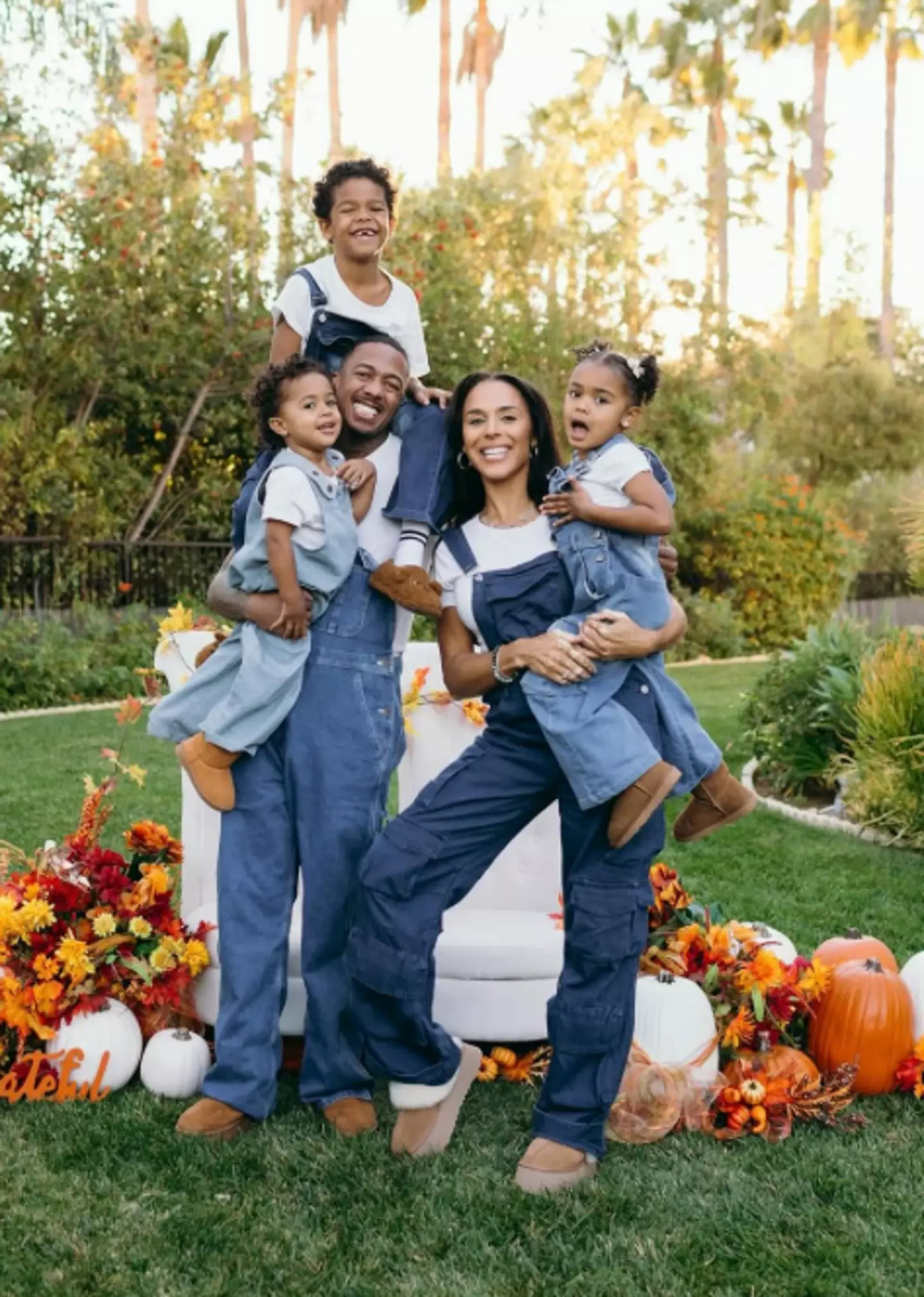
Nick Cannon has 12 kids (Instagram/@nickcannon)
NPD is a mental health condition that gives an increased sense of self-importance, a deep need for admiration, and a lack of empathy for others.
Symptoms often include lying, manipulating and losing touch with reality.
“I still don’t understand it all the way, but I kind of always wanted to get tested for it. I did a bunch of tests,” Cannon told the outlet.
“I’ve been diagnosed with ADHD. Even as a kid it was dyslexia, but just knowing that I’m just a neurodivergent individual, I kind of always knew.
“I feel like there’s so many labels out there, but it’s like, to be able to embrace it and say, ‘Look, I’m healing. I need help. Show me.’ I just embrace mental health and therapy in such a strong way.
“To be able to say I’m an example for others, but also be healing during the self-process works too.”
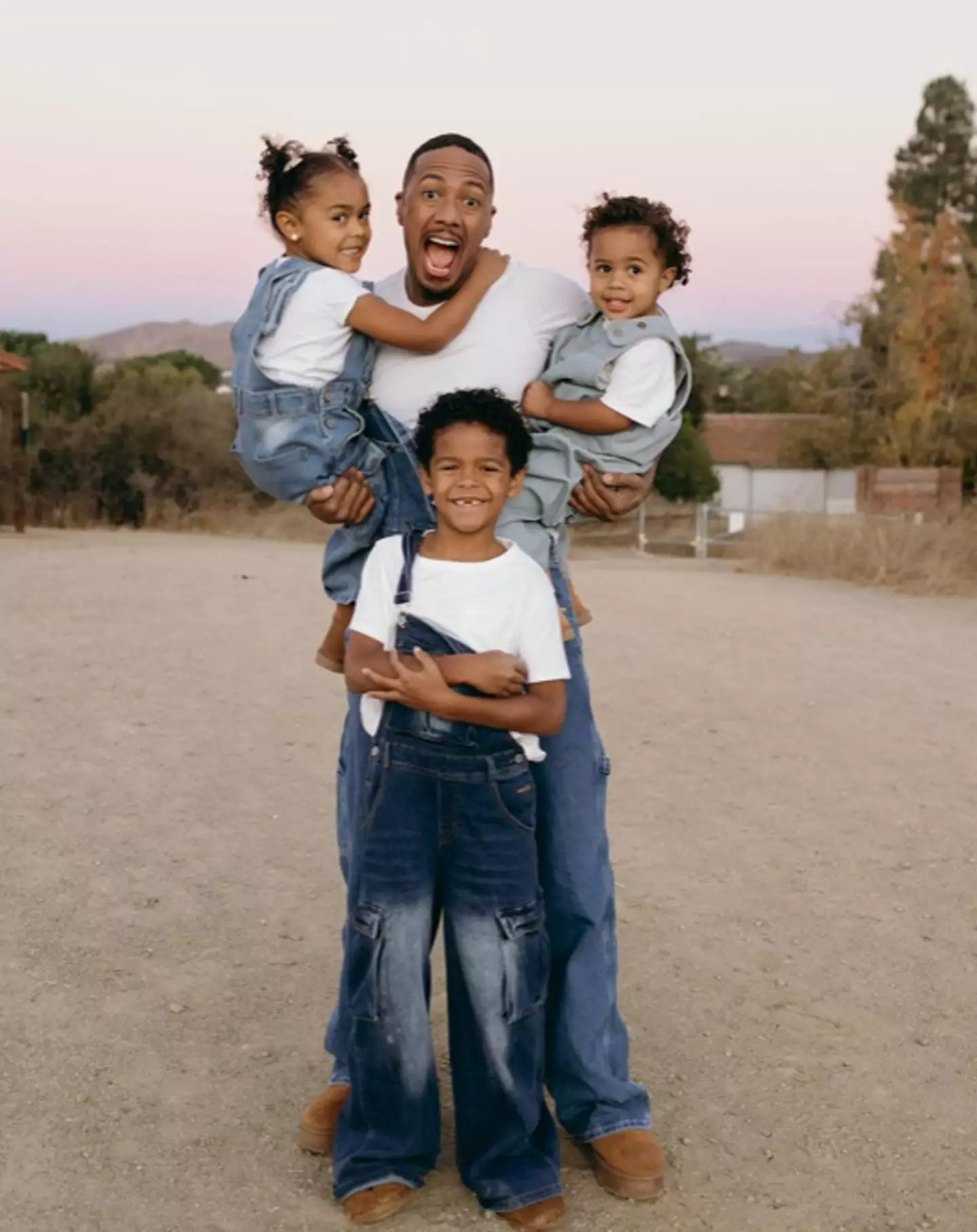
Cannon has narcissistic personality disorder (NPD) (Instagram/@nickcannon)
Cannon recently had Dr. Cheyenne Bryant, a psychologist, on his Counsel Culture podcast to ‘clinically diagnose’ him.
“I’ve taken all the power away from the term narcissism ’cause I’ve researched it and I understand it,” he said.
“Call me whatever you want… now if I didn’t know what it was, then I have issue with it.”
Last year, Cannon was asked about the external pressure to get a vasectomy during an episode of The Howard Stern Show.
The actor admitted: “It’s a scary thing.
“I felt pressured. I felt the world was trying to make me get a vasectomy. I don’t operate well under pressure. My body, my choice.
“You ever know what it’s like to be walking down the street and just a random stranger be like, ‘Man, you need to go get snipped?’ “I’m like, ‘I don’t even know you.'”
Cannon is best known for hosting the talent show America’s Got Talent from 2009 to 2016.
Featured Image Credit: Alberto E. Rodriguez/Getty Carol Lee Rose/Getty
Topics: Celebrity, Health, Mental Health
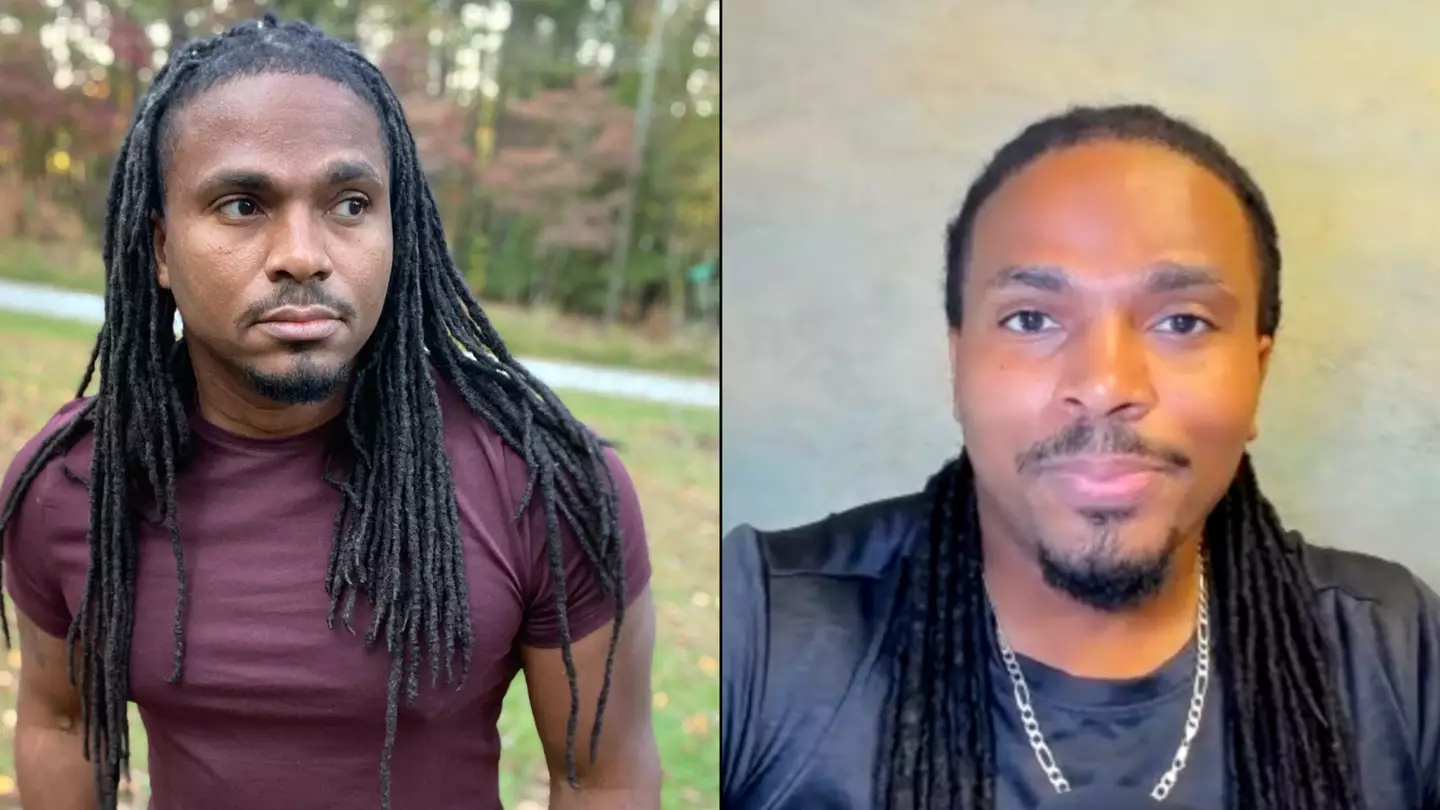
Dad-of-three Lee Hammock, 39, from North Carolina, is a diagnosed narcissist. He explains below how narcissistic personality disorder (NPD) has impacted his career, relationships and family life, and the moment he realised he had to get help.
So what is narcissistic personality disorder? It is a pathological disorder of the mind which causes the sufferer to exhibit symptoms like lack of empathy, grandiose sense of self, delusions of grandeur.
It doesn’t necessarily cause people to be pathological liars, but it does cause the sufferer to protect themselves by any means necessary, which could involve lying, manipulating, gaslighting, and blame deflection.
Not only do people with NPD manipulate other people, I feel like the very first target of our manipulation is ourselves. We have to convince ourselves that we are a certain type of person to be able to fit into certain types of circles.
‘I would go to work angry’
I worked in a distribution centre in Greensboro, North Carolina from 2011 to 2017.
One of my bosses, he was older than me, but I was more educated than him.
I’m like, ‘How in the hell are you telling me what to do?’ I would go to work angry because I felt like I was supposed to own the company.
A lot of other narcissists that I talk to have problems holding down jobs because they feel like they’re overqualified just because they are themselves.
I’m me, so I deserve more, and that’s the way they justify it.
‘It’s like an out of body experience’
There was this person [at the warehouse], I could not stand this person. I was suddenly turning everybody else in the warehouse against this person. Like other people liked him, and I didn’t like him, so I wanted to turn people against him.
I was spreading little rumors. Like, “Y’all, he kind of weird.” Later on, people would say his name and just like, “Y’all know he’s kind of weird,” and I’m like, I started that.
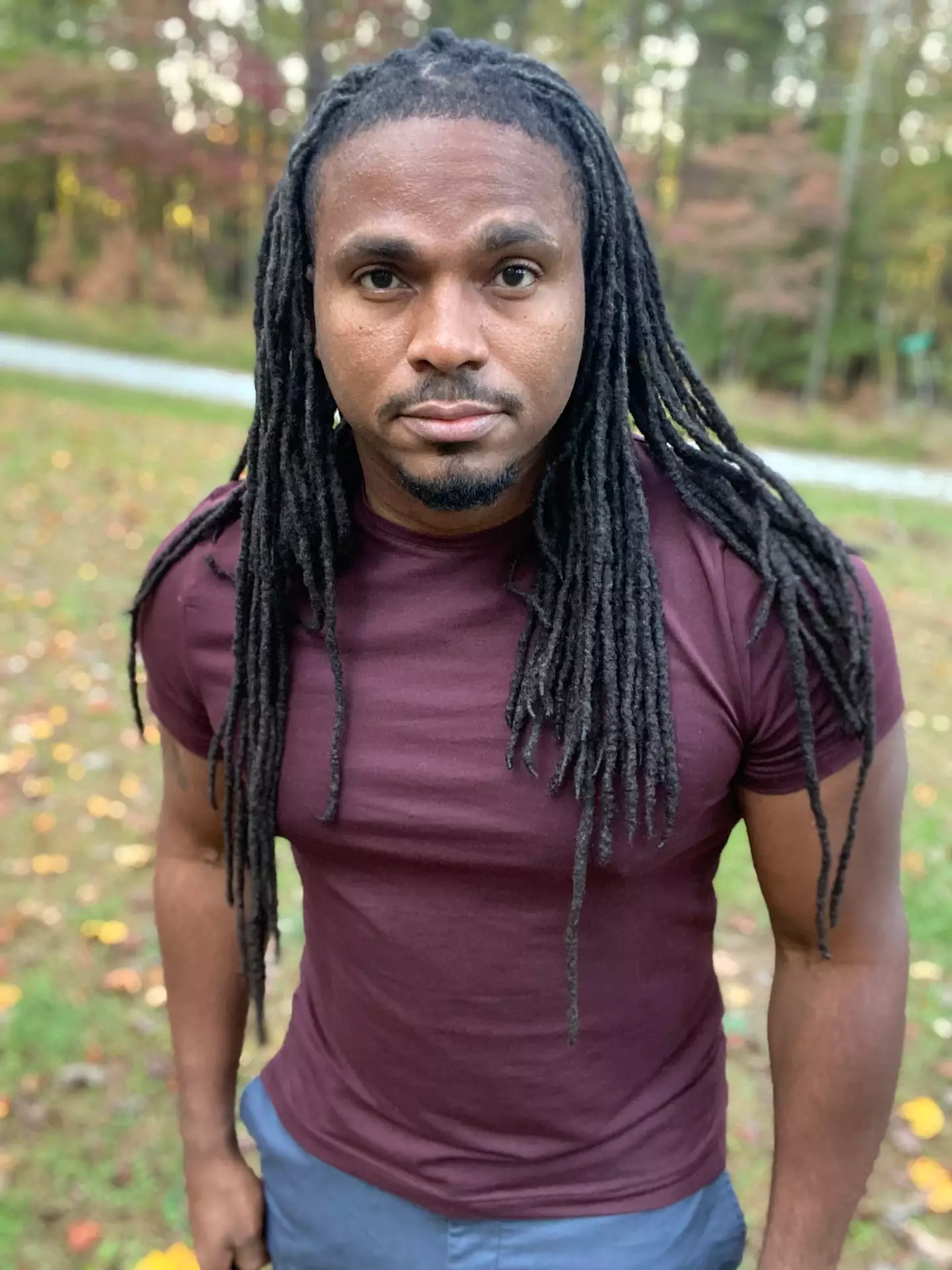
Lee Hammock is a diagnosed narcissist (Lee Hammock)
I did it in such a subtle way that people didn’t realize I was doing it. It’s kind of like the movie Inception. You plant an idea three levels deep, and now it’s their own idea.
Honestly, I even didn’t realise I was doing it until I got into therapy.
When I was manipulating people, it’s kind of like an out-of-body experience. It’s like a different part of my personality took over.
I was conscious of it happening in that moment, but it’s like I didn’t have any kind of control.
‘Narcissism destroyed my relationships’
Narcissism has destroyed most of my relationships. Most of my relationships follow the cycle of narcissistic abuse, love bombing, devaluation, discard.
All my relationships had fallen apart in the same exact way. I’ll be madly in love with somebody, and then one day I will wake up and I will view this person in a different light.
I’ll be out of love. I’m like, ‘What the heck? What am I doing with you? I know there’s somebody out there better for me.’
So I’ll start treating this person badly because I thought there was somebody else out there better for me.
I would always try to find a reason it was their fault, because that helped me justify my behaviours.
If you wouldn’t have said this to me, I wouldn’t have behaved that way.
‘I’ll be jealous of my kids’
The worst thing that I’ve done that I would attribute to having NPD is probably my behaviors towards my kids. My oldest two kids have gotten the worst version of me.
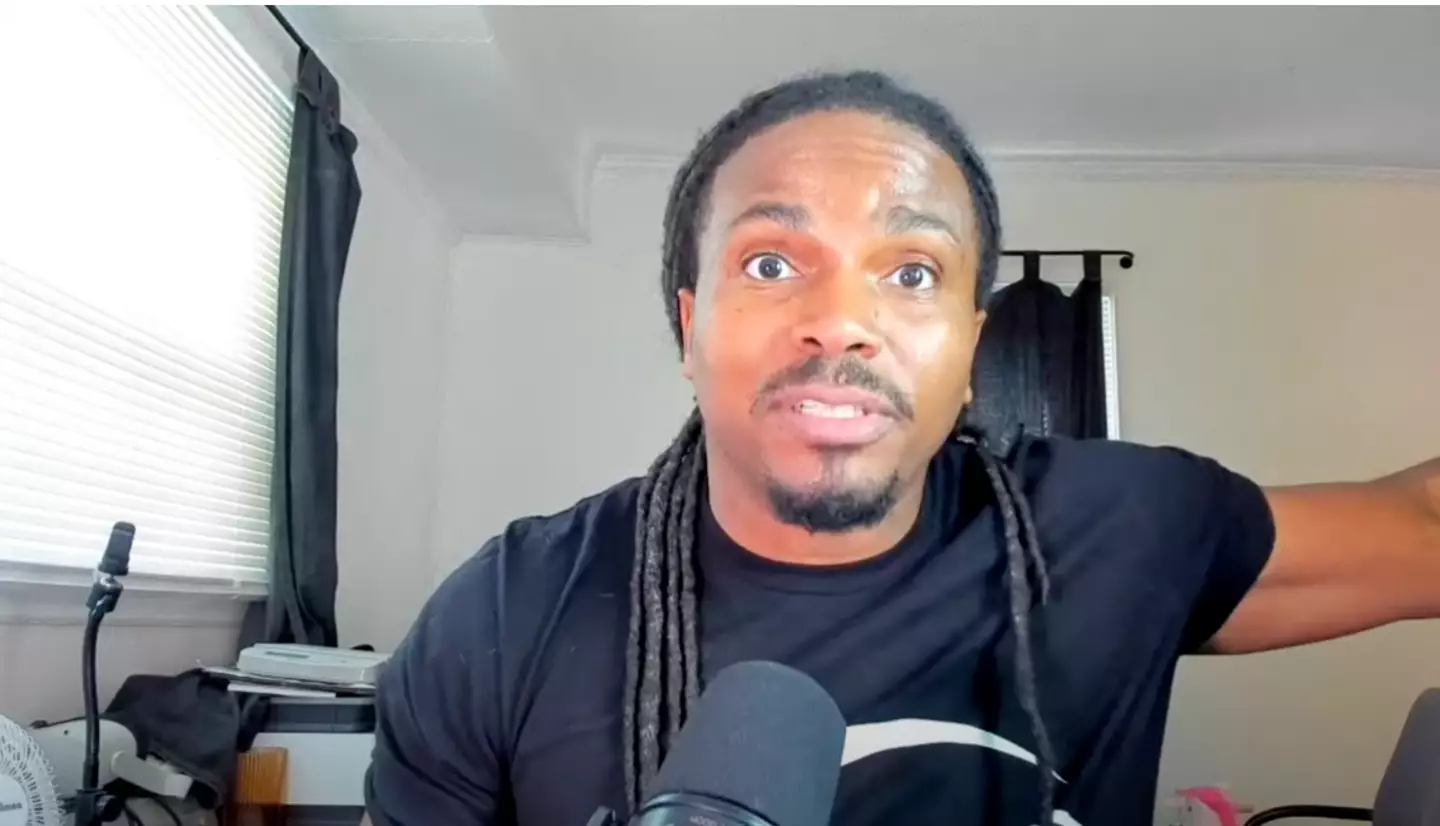
Lee Hammock now runs a YouTuber helping other narcissists and victims of narcissistic abuse (YouTube/Mental Healnness)
My middle son, just yelling and screaming at him, just making him feel, like, not enough.
My older son, just always, ‘Here’s the iPad. Let dad work.’ I’ve been emotionally neglectful to him, because I wasn’t able to connect to him on a deep emotional level.
But my daughter, my three-year-old, she gets the best version of me.
A few years ago, honestly, I’ll be jealous of my kids. They were better than me. But like, now I’m just like, “Y’all need to be better than me.”
‘Why I looked the word narcissist up’
At the end of 2016, one of my best friends, his son had passed away. I remember going to his son’s funeral and thinking life can end at any moment, and I’m not happy. My behaviour started becoming more and more erratic.
Me and my wife got into a huge argument. I was blaming my six-month-old son for holding me back in life. I always think he has this core memory of his dad yelling at him when he was a baby.
And she came home and heard me yelling and screaming at my son. And that’s when she first called me a narcissist. And she ended up leaving, and that’s why I ended up looking the word narcissist up.
I was like, “Damn, that sounds exactly like what I’ve been doing for 20 plus years.”
‘It’s destroying me from the inside out’
When I first went to therapy, the very first email I sent to my therapist was saying, “Hey, look, I’m 99.5 percent certain that I have narcissistic personality disorder and since becoming aware of it, the constant inner battle is debilitating. It’s destroying me from the inside out, and I need some help.”
Even after seven years of therapy I still have the personality disorder. It just doesn’t go away.
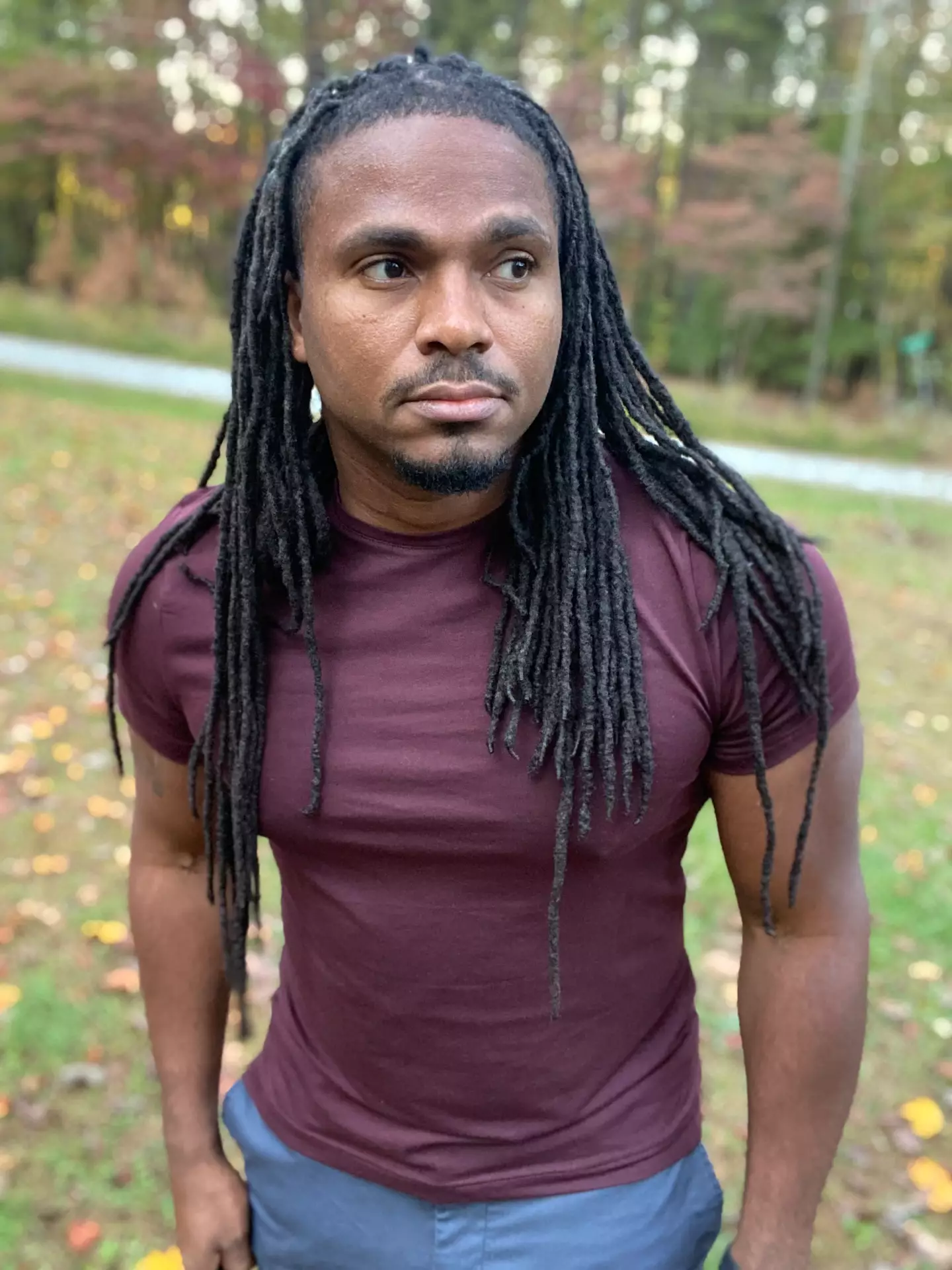
Lee Hammock turned his life around after going into therapy (Lee Hammock)
Getting diagnosed with NPD is not a very simple process. You have to build a relationship with your therapist.
I took two psych evals [psychological evaluations]. One of them is 100 questions, and the other one is 200/300 questions. It takes an hour, two hours to finish that test.
They have built in deception sensors to tell if you’ve been lying, because they ask you the same question a couple times in different ways to catch you up. So you’re even more of a narcissist than we thought you were at first, you’ve been lying through this test.
They came out not only saying that I had narcissistic personality disorder, but also had general anxiety disorder and clinical depression as well.
‘Apologising can actually hurt’
Since I got diagnosed, it’s allowed me to take accountability for a lot of things that I normally would have passed blame to someone else for.
For a narcissist, apologising can actually hurt. You get chill bumps, you start sweating, you get hives.

Lee Hammock says there’s one thing people get wrong about narcissism (LADbible)
It’s painful to apologise because when I apologise to you, I’m giving control to you. You can determine whether or not you want to accept the apology.
I’ve been in therapy so long, I understand that apologizing actually gives me the power. Like whether or not you accept my apology is outside of my control.
‘Narcissists can love’
The one thing people misunderstand about NPD is that I think most people think narcissists are robotic meat sacks.
Most narcissists can care, can love. They just have this internal blockage which prevents them from experiencing that for real.
Something happened to them in their childhood, outside of their control, that makes them behave the way they behave.
This is not an excuse for their behaviours. Something happened to you in your childhood, you have to deal with it.
It’s not the burden of your partner to make up for something that your mum or dad did to you.
Lee Hammock now runs YouTube channel Mental Healness, along with coaching sessions for narcissists and victims of narcisstic abuse. He is also working on his first book.
Featured Image Credit: Lee Hammock
Topics: Mental Health, Originals
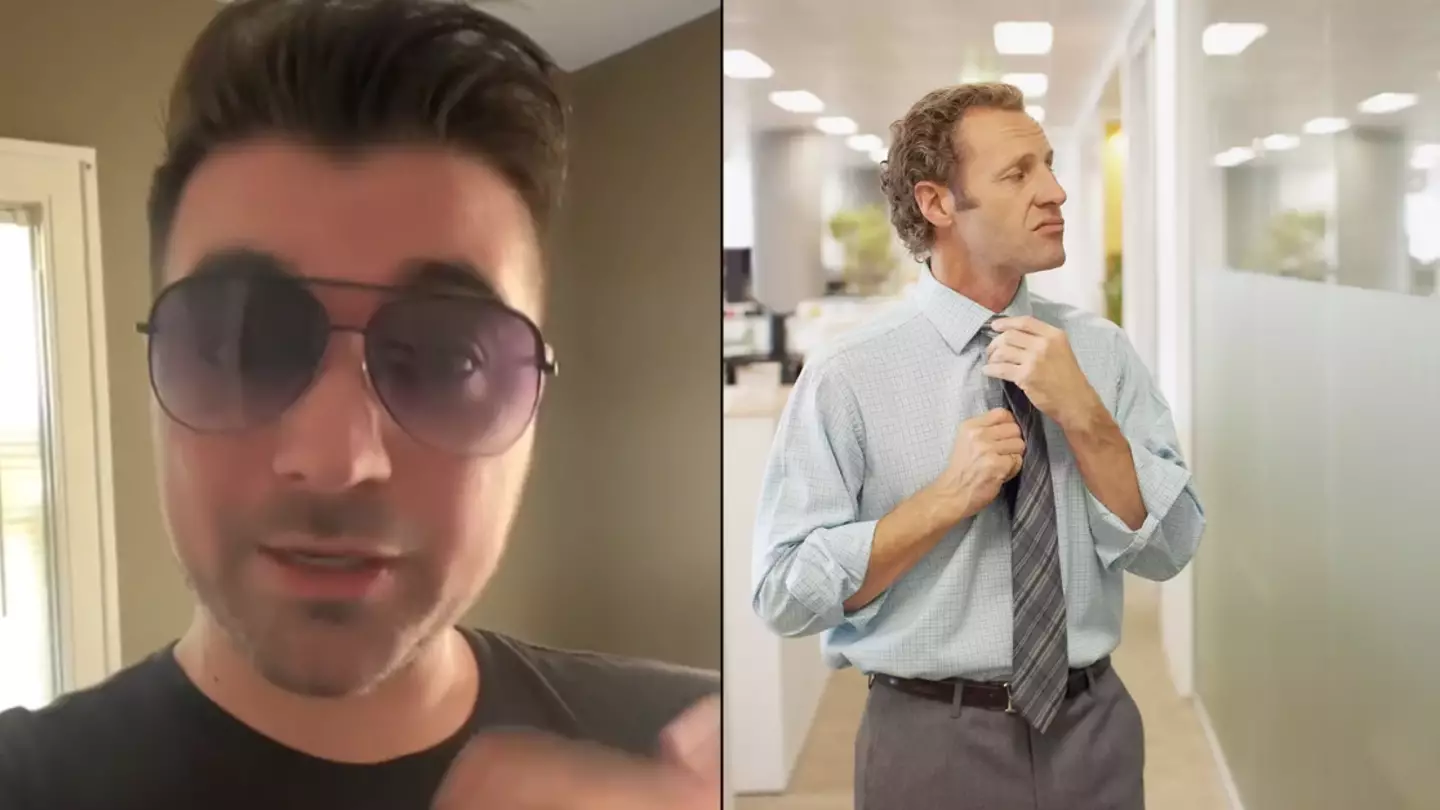
A diagnosed narcissist has revealed the three manipulation techniques which he used to believe were ‘normal behaviours’.
Researchers estimate that between one to five percent of the UK population are either diagnosed with or meet the criteria for Narcissistic personality disorder (NPD).
However, this doesn’t mean the rest of us are immune to manipulative or selfish actions, with US content creator Jacob Skidmore – who goes by The Nameless Narcissist on social media – explaining three manipulative techniques he previously thought we normal behaviour and the reasons why.

The three traits are things Skidmore thought most people did (Getty Stock Images)
Intentionally using ‘I shouldn’t have said that’ in conversations
We’ve all been in a situation where we’ve gone to divulge a piece of juicy information, only to realise at the very last moment that it’s absolutely something we shouldn’t be sharing.
Cue the awkward back-and-forth of ‘I really shouldn’t be telling you this’ and ‘well you’ve brought it up so you may as well finish’.
However, for Skidmore, this interaction was less of an accidental slip-up and instead an intentional move to reveal his true feelings during a conversation.
Explaining why he’d do this, Skidmore added: “Obviously you’re going to get curious and keep asking me, so it doesn’t seem like it’s my fault if I mentioned it.”
Tricking people into thinking you’re lying
The next example of manipulative behaviour includes tricking people into thinking you’re lying when you’re actually telling the truth.
Using a similar example of hanging out with a hypothetical group of friends, he explained: “Let’s say you, Adam and Lilith are hanging out… and you accidentally break Lilith’s TV. She doesn’t know which one of you did it so she’s asking.”
The creator then explained how he would ‘pretend’ to be bad at lying when taking the blame so the other person would get the blame and he would get away with it.
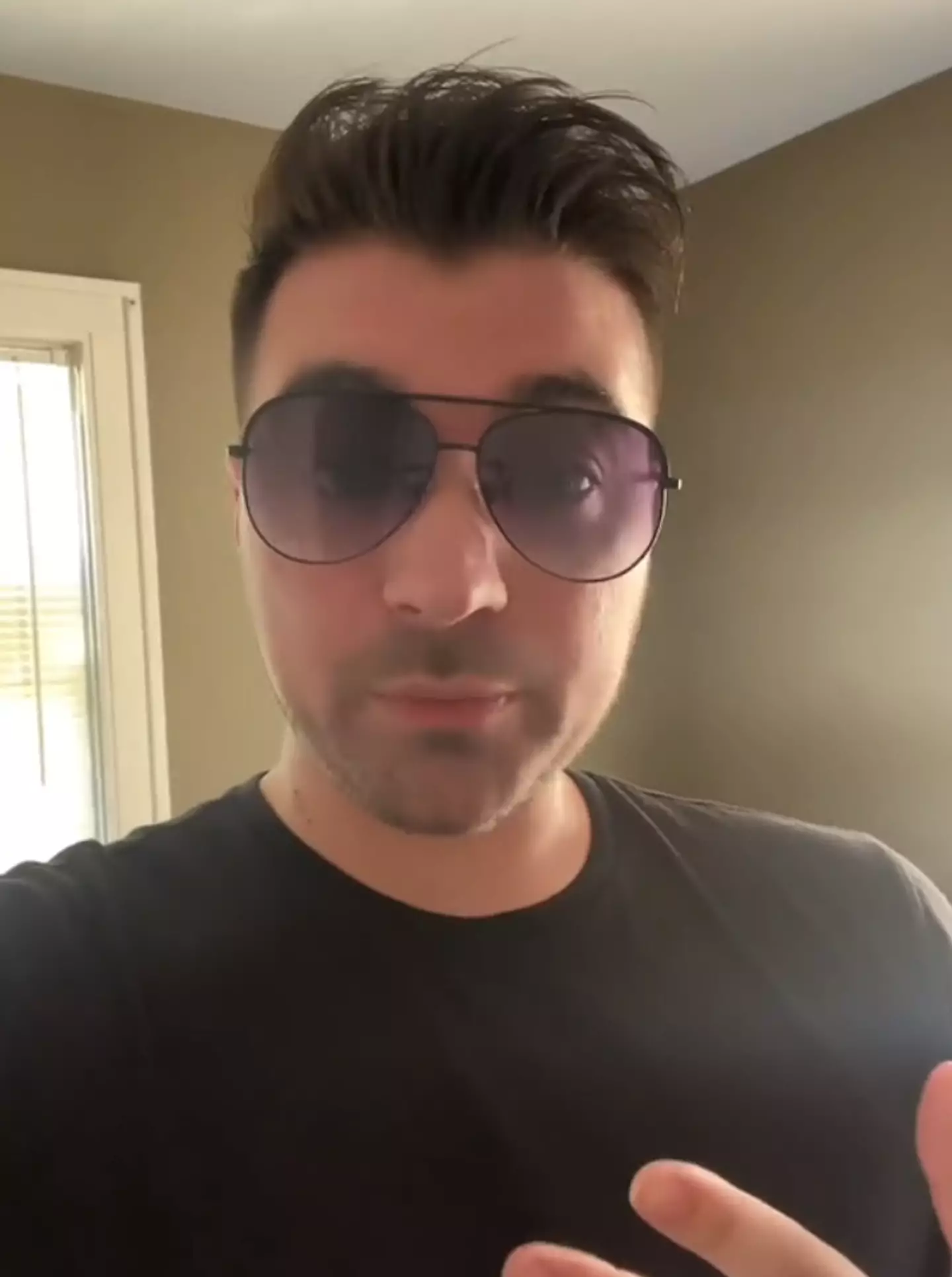
He also explained the reasons why he thought most people did these things (TikTok/thenamelessnarcissist)
“I always kind of assumed most people got caught in their lies intentionally because they weren’t actually lying,” Skidmore added.
Intentionally distancing yourself from others
Explaining that this move was more about ‘self-protection’ rather than to get something from others, Skidmore explained that he used to distance himself from others and pretend not to care about them as a method of self-protection.
“I was convinced that if people knew that I cared, it would be leveraged against me and I felt like nobody could care about me in a genuine way,” he said.
“I thought everyone kind of acknowledged that affection like that was kind of a weakness.”
The statements left viewers with a lot to think about, with one person noting that intentionally distancing yourself can be a form of avoidance caused by trauma, while others said they could relate to aspects of these behaviours.
Featured Image Credit: (TikTok/thenamelessnarcissist/ Getty Stock Images)
Topics: Health, Mental Health, TikTok, Social Media
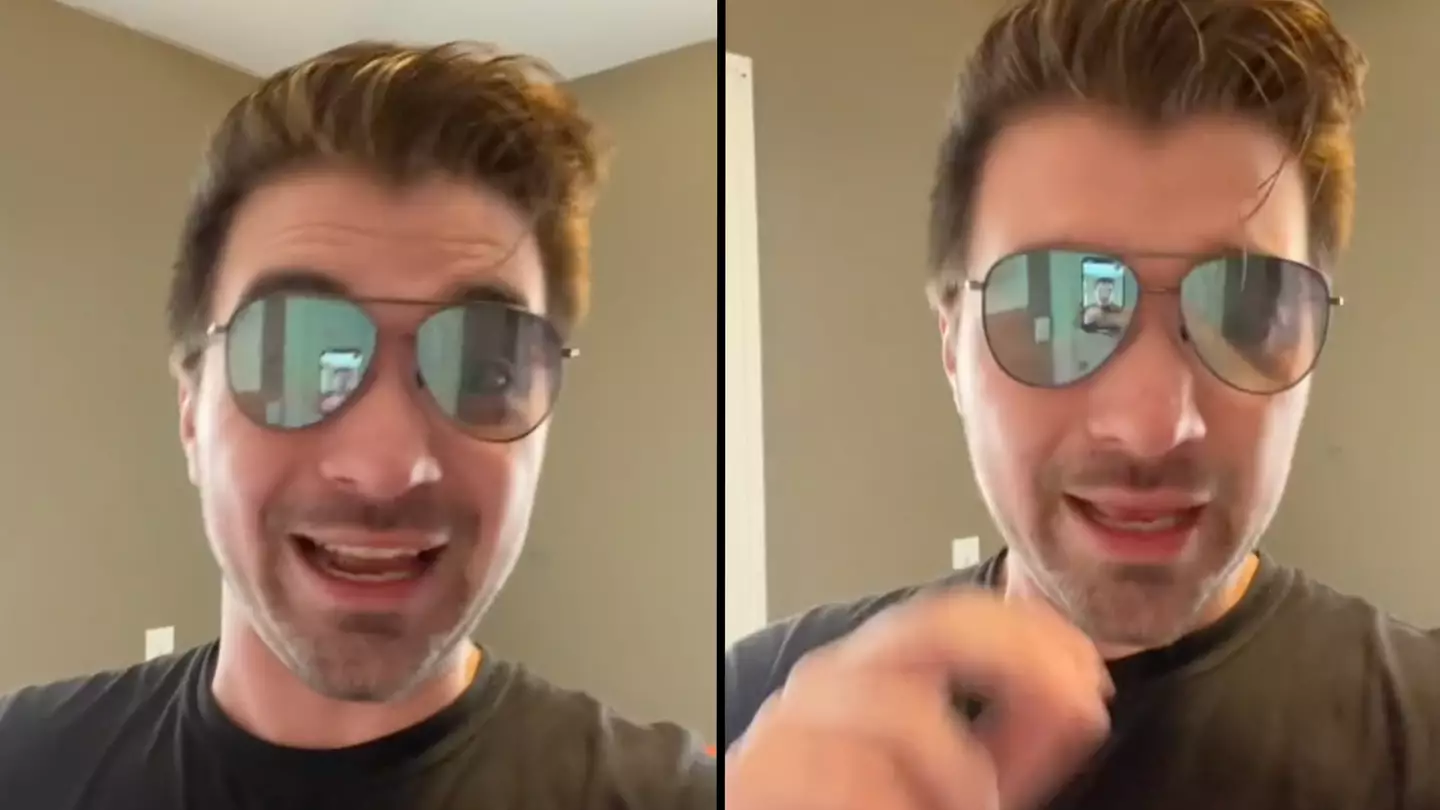
A diagnosed narcissist has shared the one question you should consider asking if you believe someone you know may have the condition.
Previously a way to insult anyone who appeared vain or self centred – with the name being inspired by the Greek myth of Narcissus – narcissism, or narcissistic personality disorder (NPD), is a now clinically diagnosed condition. Symptoms of NPD can include a distinct lack of empathy for others, a grandiose sense of entitlement and a chronic need for admiration.
Research shared via the BBC estimates that 1 in 20 people in the UK may have the condition.

The question reveals how a person sees the world (Getty Stock Images)
Identifying a narcissist isn’t straightforward, especially as the term gets thrown around very easily when describing selfish behaviour, however one man has revealed the one question he thinks you should ask.
Taking to TikTok, a user who goes by the name of @thenamelessnarcissist, recalled how he came to the realisation after having a conversation with a friend who is also a diagnosed narcissist.
The question you need to ask? “Ask them ‘don’t you think there are just objectively better and worse people in the world… and the rest of the world just likes to ignore that?” the creator revealed.
“Even better if you add something that you and that person are both part of the upper echelons.”
He went on to explain how hearing this question for the first time almost felt like a lightbulb moment to him, adding: “I was shocked that finally I had met somebody else who could see the reality of things.”
Now this many not seem like the most obvious thing you’d think to bring up in a day-to-day conversation, however the creator went on to explain exactly how this question gives you an insight into how a narcissist’s mind works.
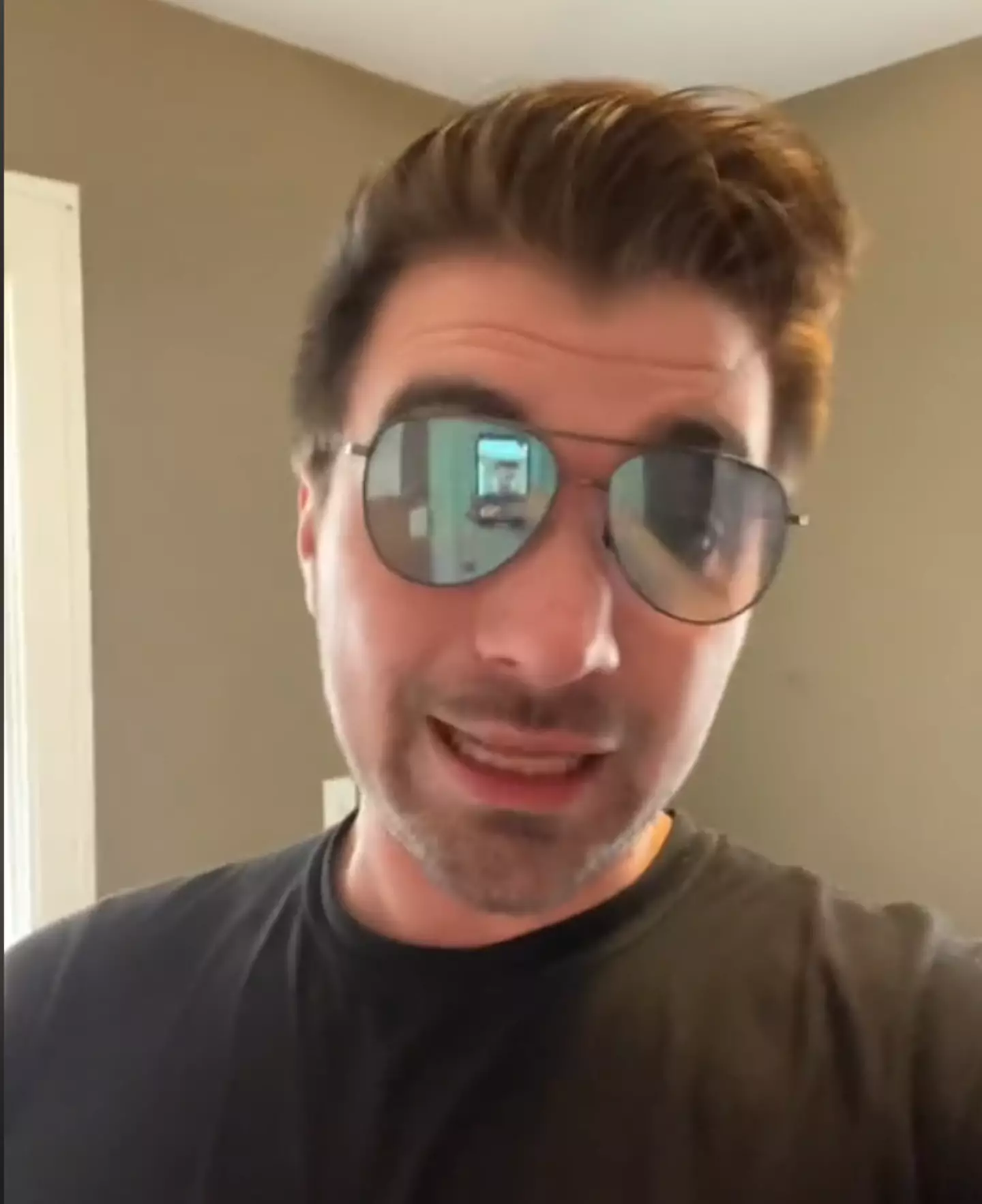
The creator went on to explain how the question can provide an insight into a narcissist’s mind (TikTok/thenamelessnarcissist)
“Narcissists view the world through that lens, through the ideas that there are some people who have more inherent self worth and some people who have less self worth,” he explained.
“That is an essential core belief that drives their actions. And it is why constantly they’re trying to prove they are part of the better people, because deep down they think they are the worst people.”
This isn’t the only way to tell if someone may have NPD, with psychiatrist Dr. Tharaka Gunarathne revealing how a relationship with a narcissist can leave you feeling.
“It feels like your sense of identity has been removed or hoovered out of your own mind,” he said during an interview with BBC’s Morning Live.
“This can be really disconcerting… as identity is a really important part of self.”
Featured Image Credit: (TikTok/thenamelessnarcissist)
Topics: Health, TikTok, Mental Health
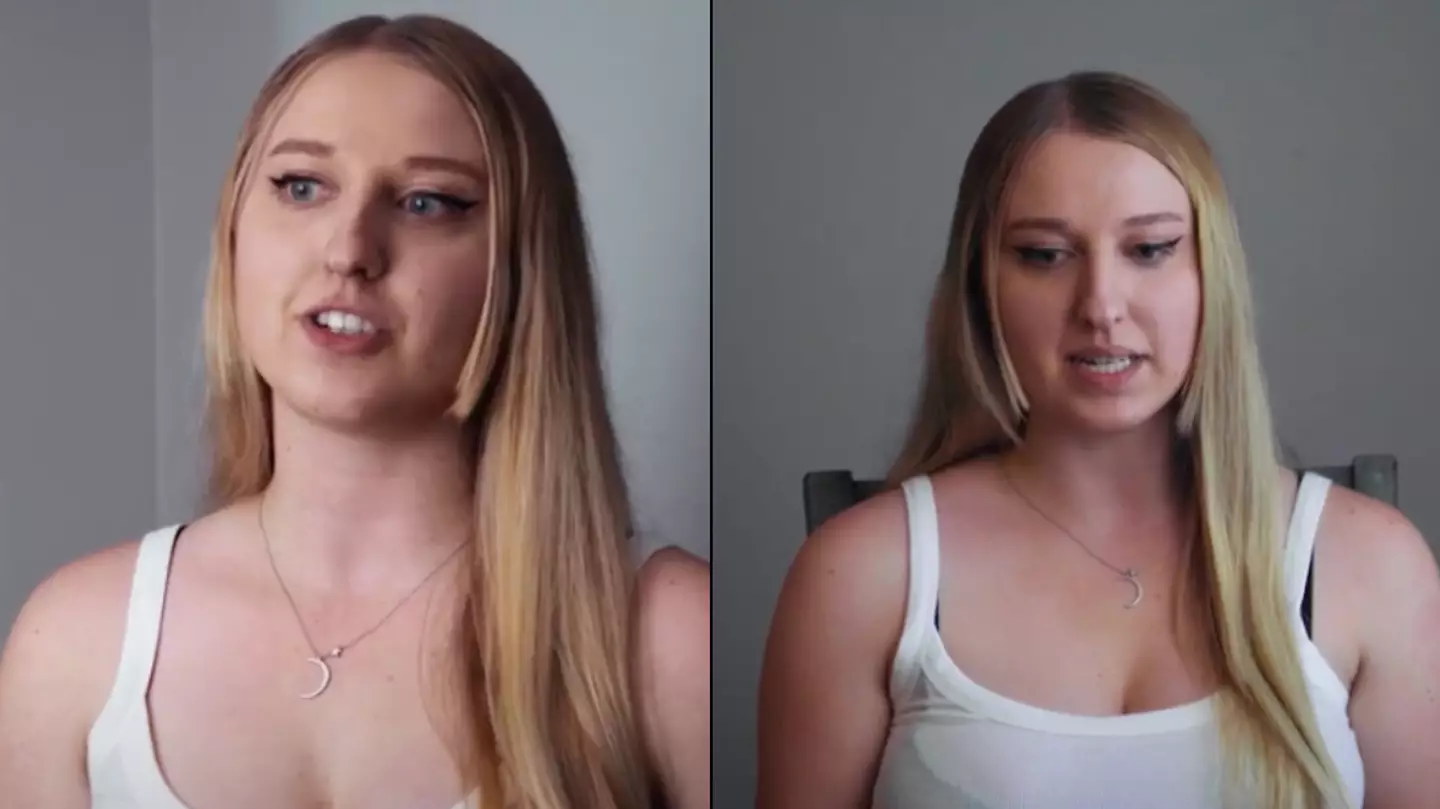
A woman living with narcissism has revealed how the disorder impacts every aspect of her life.
According to WebMD, narcissism is ‘extreme self-involvement that makes a person ignore the needs of those around them’.
While most people exhibit narcissistic behaviour from time to time, a true narcissist ‘frequently disregards others or their feelings’.
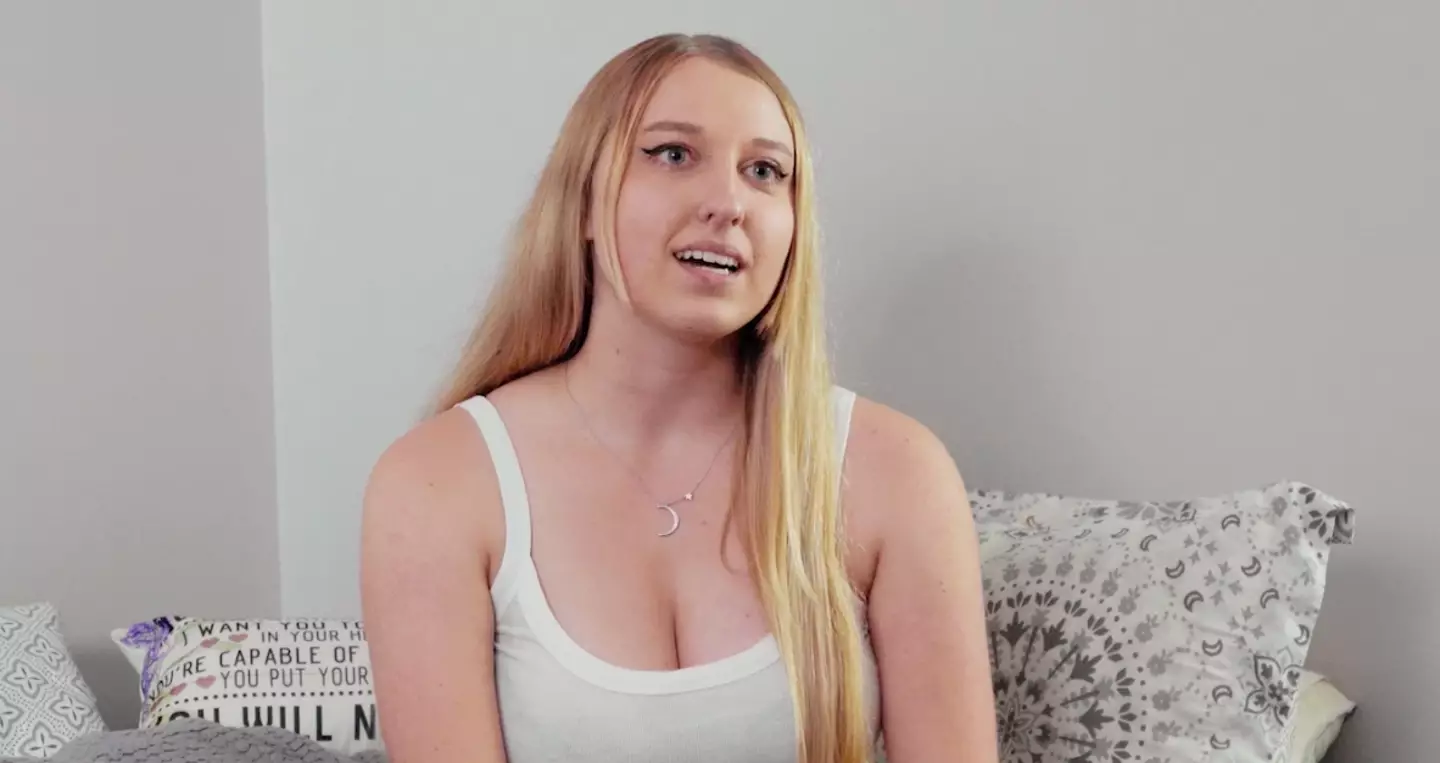
Tessa explained how NPD impacts her life (SELF/YouTube)
Tessa, 24, is living with narcissistic personality disorder.
“I always say I’m not my diagnosis, but at the same time it pervades everything I do,” Tessa explained.
“Narcissistic personality disorder impacts every aspect of my life. NPD is a mental health condition in which people can have an inflated sense of their own importance, a deep need for excessive attention and admiration, trouble with relationships and a lack of empathy for others.”
In a video, shared on SELF‘s YouTube channel, Tessa explained how her condition impacts her day-to-day life.
Getting ready
Tessa explained that even when getting ready in the morning, she struggles with feelings of emptiness.
“My feelings of emptiness and my perfectionism impacts my morning ritual of getting ready,” she said.
“I’m in the mirror every day doing my make-up first thing, practice facial expressions, body movements and stuff, ’cause I just wanna’ come across exactly how I want.
“I’m the type of narcissist that really wants and needs the spotlight so badly.
But every time I get it, I find myself freezing up due to past traumas of humiliation.”
Self-care
Tessa explained that she values self-care to feel at her best, explaining how she often practices meditation to combat symptoms.
“Self-care is beyond important for me to regulate my symptoms and to feel at my best and most capable,” she explained.
“The symptoms that relate specifically to my NPD are fragmentation of myself, I feel like a million different pieces that’s struggling to be a whole person.
“… I really struggle to be interested in anything outside of myself, it’s like this pathological self focus where even if I wanted to be interested, I can’t.
“So I do mindfulness meditation to help with my symptoms.”
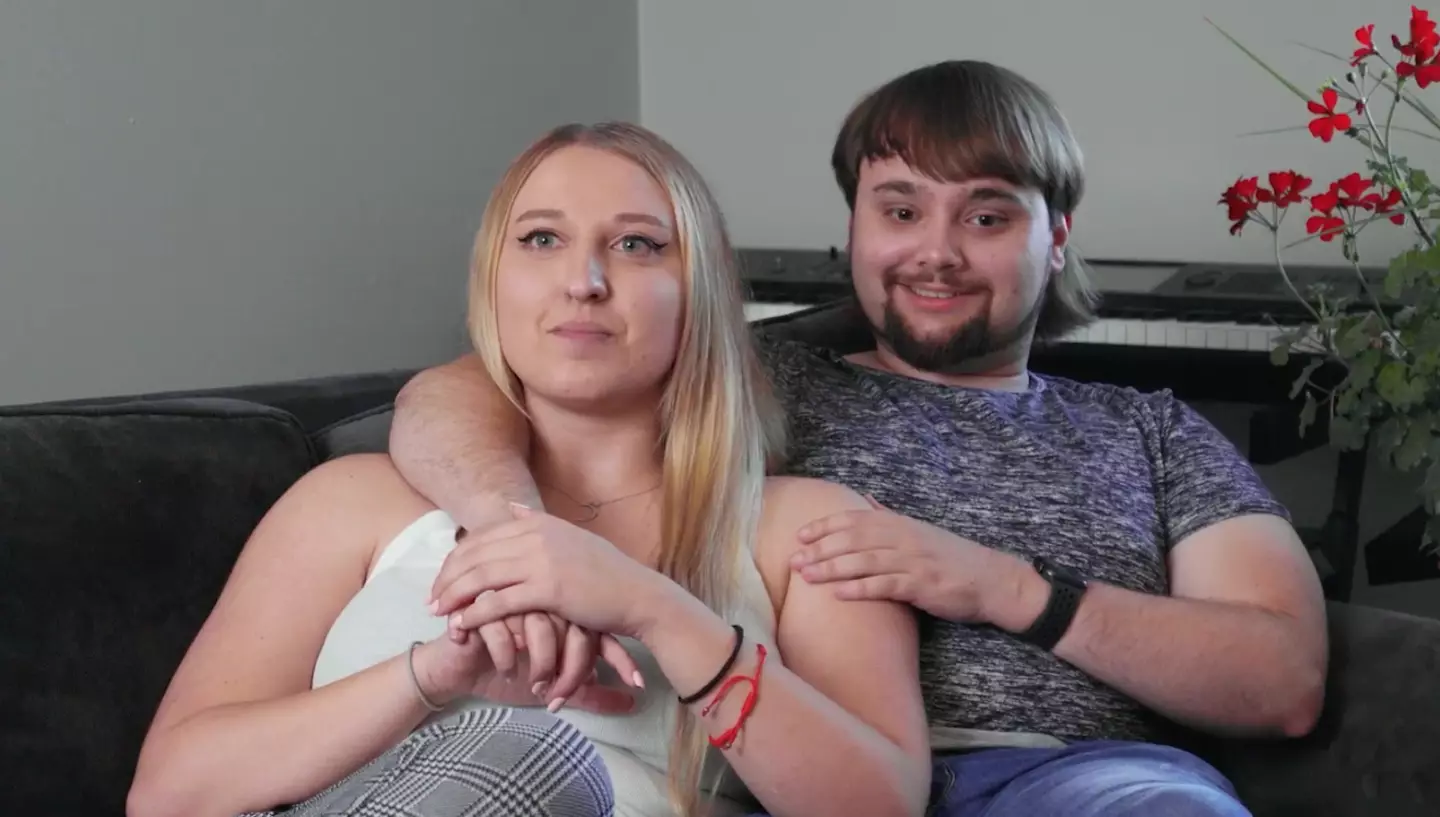
Tessa explained how NPD impacts her relationships (SELF/YouTube)
Community
Tessa explained that finding an NPD community online has been super helpful, especially when meeting people who also struggle with the same condition.
“It felt like I had found my people for the first time,” she said.
Music
“Making music helps me the most with my emotional dysregulation and expressing myself when I find it very hard to open up to others,” said Tessa.
“Sometimes I’ll have a really hard day and suddenly I’ll feel like a song is ready to burst out of me and I’ll just rush to my room and pour out everything.
“I don’t even know what I’m feeling.”
Tessa explained music allows her to express her thoughts, adding that her style is a mix of different genres.
Relationships
Tessa explained that often, her romantic relationships are impacted by her NPD.
“My relationships are often negatively affected by my grandiosity, my cognitive distortions and my depression,” she said.
Grandiosity is a psychological trait that involves an unrealistic feeling of superiority.
“Once I’ve worked through my negative symptoms, my healthy relationships have helped every symptom I have.”
Tessa explained that while she’s not had any previous healthy relationships, she’s currently with a partner where she feels ‘seen and loved’.
